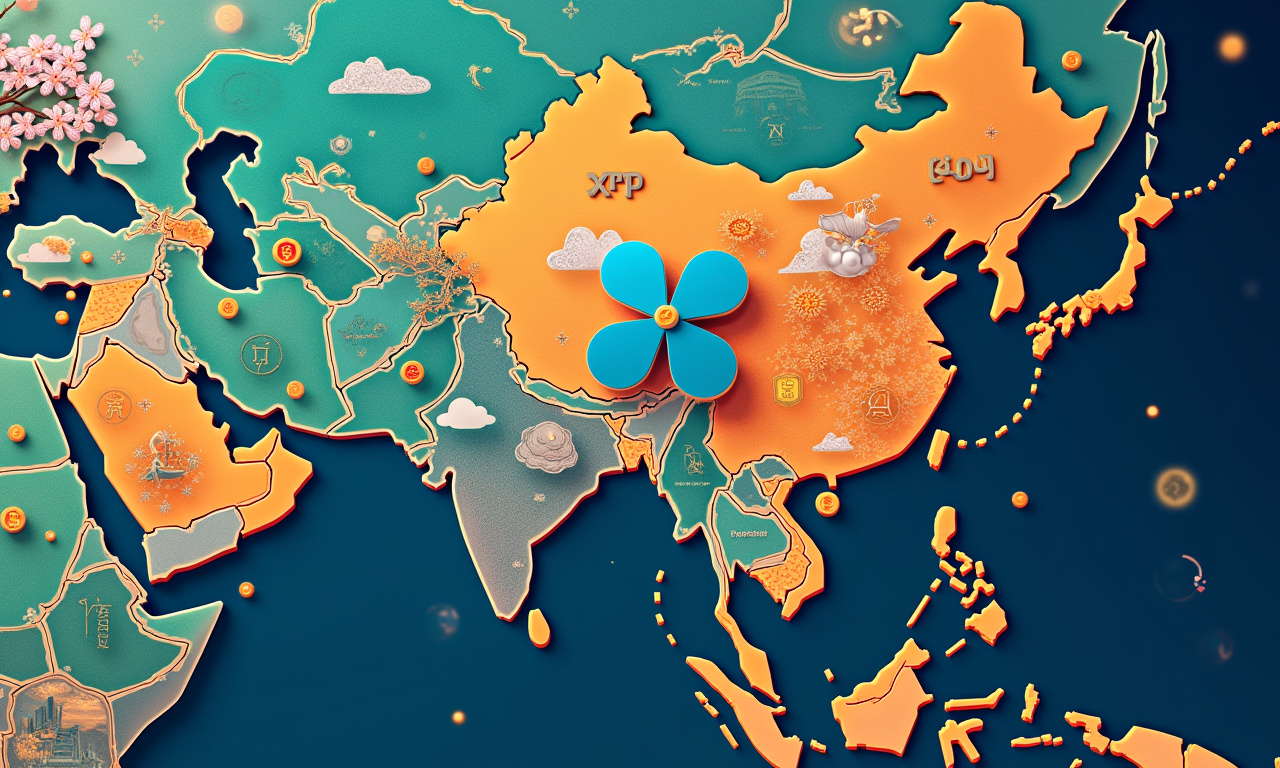
The Shocking Truth About Crypto in Conflict Zones: Data Reveals All

Liu Wenjing
You think you know crypto. You’ve read the headlines, you’ve seen the fraud, you’ve witnessed the promise of a decentralized utopia. Have you truly thought about what it would mean for someone who’s living in a war zone. Forget the Lambos and the moonshots. For many, crypto is a lifeline. The data is beginning to tell a very specific, and sometimes eerie, story.
Crypto: A Conflict Zone Currency
Let's face it: traditional finance fails in conflict. Banks shutter, currencies devalue, and liquidity turns into a query of life or dying. Bitcoin, and perhaps a bit more realistically stablecoins like USDT, avoid this whole shambolic system entirely. Think about that. A mother in Syria can receive funds from a relative abroad without navigating a corrupt banking system or worrying about hyperinflation eroding its value before she can buy food.
The reality is, the extreme volatility and instability of fiat currencies in these regions makes even super volatile Bitcoin seem safe by comparison. It’s a last ditch effort, to be sure, but necessity is the mother of invention after all.
This is where “unexpected connection” comes into play. Instead, we waste time just debating the ethics of crypto – is it good? Is it bad? That we completely miss the point. In a military conflict, ethics too frequently become a luxury. Survival trumps all. Crypto is an incredibly powerful tool, and like any tool, it can be used to build or destroy. So it’s important to realize that rather than demonizing the tool itself, we have to look deeper and find out who’s using it and why.
Debunking the "Terrorist Financing" Myth
Ah yes, the go-to argument against crypto: it's used for terrorist financing! Of course, this happens. Criminals will always exploit new technologies. Let's be realistic. Is cash not used for terrorist financing? Diamonds? Art? Everything can be used for nefarious purposes. To claim that crypto is mostly used for this is not just inaccurate, it’s irresponsible. At its worst, it enables us to willfully dismiss the nuanced, legitimate reasons people living in crisis-oriented contexts may choose to engage with digital assets.
And this is the basic problem with the argument For a less aggressive, but still unreasonable, example. In the meantime, while illicit activity is real, it is a drop in the bucket. It accounts for over 0.65% of total crypto transaction volume. Let’s complete the circle and focus on smart, focused regulation. All blanket bans do is hurt the most innocent people just trying to make a life.
Here's the really uncomfortable truth. Unintended consequences Western sanctions, meant to destroy the war machines of brutally oppressive regimes, in practice often punish their most vulnerable populations most severely. Crypto provides one of the most effective tools available to circumvent these limitations. It allows humanitarian assistance to get to the people who need it most. It’s a double edged sword, to be sure. Is our current system better?
Is Regulation the Answer?
Though not without its complications, Ukraine’s extraordinary embrace of crypto is a remarkable case study. By legalizing and regulating these digital assets, they’re creating a framework not just to attract investment but to build public trust and confidence. They have "On Virtual Assets" Law, which classifies virtual assets as property and establishes legal rights for ownership, use, and trade. This, too, is an extremely smart move in the long run and other war-torn countries should pay attention.
Regulation is a tricky beast. Too little, and you lose the opportunity to capture societal benefits while stifling innovation and forcing activity underground. Not enough, and you risk leaving too much money on the table while encouraging fraudulent or abusive behavior. The trick is to find a happy medium. We do need a new regulatory framework that both protects consumers and enables crypto to serve those who stand to benefit from it most.
The reality is, we must begin to have a more complex discussion about crypto in conflict settings. It's not a magic bullet, but it's a powerful tool that can provide financial stability and opportunity in some of the world's most challenging environments. The “shocking truth” is that crypto isn’t good or bad per se. It's that we have a responsibility to understand its potential, mitigate its risks, and ensure that it's used to empower, not exploit, the world's most vulnerable populations. Fear and misinformation should not control the story right now. Look at the data, consider the context, and ask yourself: are we really doing everything we can to help?
| Feature | Traditional Banking | Cryptocurrency |
|---|---|---|
| Accessibility | High Barriers | Low Barriers |
| Transaction Speed | Slow | Fast |
| Cross-Border | Complex & Costly | Simple & Cheaper |
| Censorship | Yes | Potentially No |
The fact is, we need to start having a more nuanced conversation about crypto in conflict zones. It's not a magic bullet, but it's a powerful tool that can provide financial stability and opportunity in some of the world's most challenging environments. The "shocking truth" isn't that crypto is inherently good or bad. It's that we have a responsibility to understand its potential, mitigate its risks, and ensure that it's used to empower, not exploit, the world's most vulnerable populations. Don't let fear and misinformation dictate the narrative. Look at the data, consider the context, and ask yourself: are we really doing everything we can to help?


